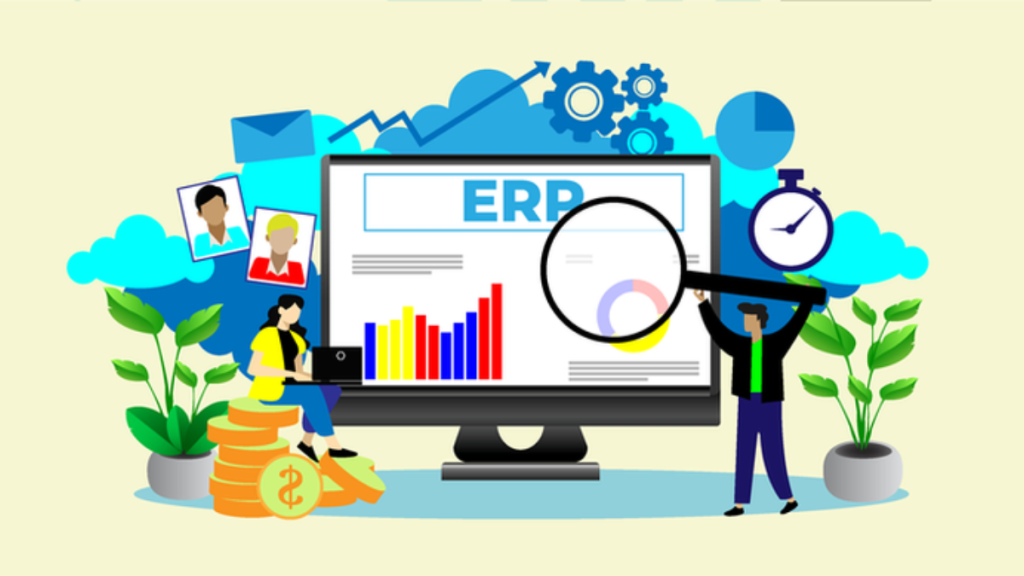Unveiling the Essentials: Why Your Business Needs an ERP Solution
In the dynamic landscape of modern business, staying ahead requires more than just ambition; it demands strategic tools that can orchestrate efficiency, facilitate informed decision-making, and foster growth. Enter Enterprise Resource Planning (ERP) solutions – the unsung heroes that have become essential for businesses of all sizes. In this exploration, we unveil the essentials of why your business needs an ERP solution and how it can be the transformative force your organization needs.
- Centralized Data Management for Operational Harmony The Challenge:
As businesses grow, managing data becomes increasingly complex. Disparate systems and manual processes create silos, hindering communication and decision-making. The Solution:
ERP solutions provide a centralized data management system. By consolidating data from various departments into a unified repository, ERP ensures accuracy, consistency, and real-time access to information. The Benefit:
Operational harmony is achieved as departments collaborate seamlessly, eliminating data silos and fostering a cohesive work environment. - Streamlined Workflows for Operational Efficiency The Challenge:
Manual workflows and redundant processes impede operational efficiency. Tasks are time-consuming, prone to errors, and lack the agility needed in a fast-paced business environment. The Solution:
ERP solutions streamline business processes through automation. Routine tasks, from order processing to inventory management, are optimized for efficiency, reducing errors and increasing overall productivity. The Benefit:
Operational efficiency improves, allowing employees to focus on value-added tasks, innovation, and strategic initiatives that drive business growth. - Real-Time Analytics for Informed Decision-Making The Challenge:
Inaccurate or delayed information hampers decision-making. Businesses need timely insights to respond swiftly to market changes and capitalize on opportunities. The Solution:
ERP solutions provide real-time analytics, offering a comprehensive view of key performance indicators, financial metrics, and market trends. The Benefit:
Informed decision-making becomes a reality as executives and managers access up-to-the-minute data, enabling proactive responses to market dynamics and driving strategic initiatives. - Facilitating Growth with Scalability The Challenge:
Traditional systems struggle to accommodate the growing needs of expanding businesses. Scaling operations becomes a daunting task. The Solution:
ERP solutions offer scalability, adapting to the evolving demands of a growing organization. Whether it’s increased transactions, users, or data, ERP systems can scale without compromising performance. The Benefit:
Businesses can expand confidently, knowing that their ERP solution will evolve with them, supporting growth and ensuring continued operational efficiency. - Enhancing Customer Experiences through Integrated Systems The Challenge:
Disconnected systems result in fragmented customer experiences. Inconsistent information and disjointed processes can erode customer satisfaction. The Solution:
ERP solutions integrate various business functions, including customer relationship management (CRM), ensuring a holistic view of customer interactions. The Benefit:
Customers experience seamless interactions as sales, marketing, and customer service teams collaborate effectively, providing a unified and personalized experience. - Compliance and Risk Mitigation The Challenge:
Adhering to industry regulations and mitigating risks is a constant challenge. Non-compliance can lead to legal issues and reputational damage. The Solution:
ERP solutions include features that facilitate compliance tracking and reporting. They also incorporate robust security measures to mitigate risks associated with data breaches. The Benefit:
Businesses can navigate regulatory landscapes confidently, reducing the risk of penalties and reputational harm, while ensuring the security of sensitive information. - Cost Savings and Resource Optimization The Challenge:
Inefficient processes and resource mismanagement contribute to increased operational costs. Businesses need to optimize resources to remain competitive. The Solution:
ERP solutions identify inefficiencies, reduce manual efforts, and optimize resource allocation. This results in cost savings and ensures that resources are deployed strategically. The Benefit:
Organizations achieve cost-effectiveness, redirecting saved resources towards innovation, growth initiatives, and enhancing their competitive edge in the market. Conclusion: Elevating Your Business with ERP
In conclusion, the unveiling of the essentials highlights why your business needs an ERP solution. Beyond being a mere software tool, ERP becomes the backbone of your organization, propelling it forward with operational harmony, streamlined workflows, real-time analytics, and the ability to adapt to changing business landscapes.
As businesses navigate the complexities of the modern marketplace, an ERP solution isn’t just a luxury; it’s a strategic necessity. It transforms your business into an agile, data-driven, and growth-focused entity, ensuring that you not only keep pace with the demands of today but also lay the groundwork for sustained success in the ever-evolving business landscape. Embrace the essentials of ERP, and witness the transformation of your business into a dynamic, efficient, and future-ready enterprise.
